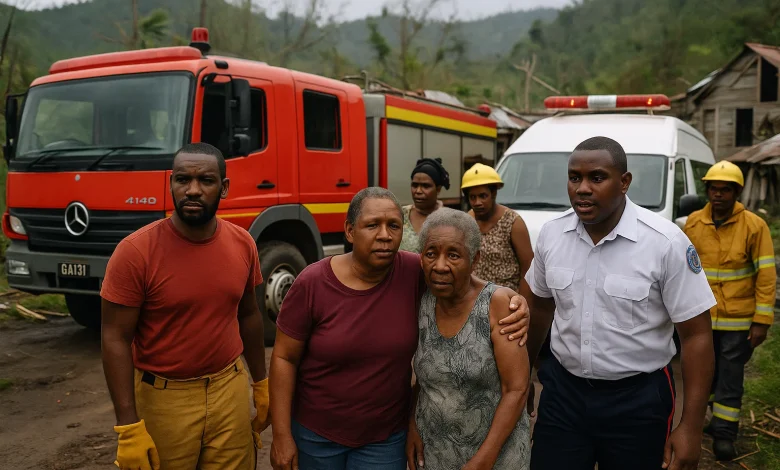Fire and Ambulance Service Act of Dominica

The Fire and Ambulance Service Act of Dominica is the principal legislation that establishes and regulates the island’s Fire and Ambulance Division. It defines the structure, responsibilities, and powers of the service, ensuring that Dominica has a coordinated system for responding to fires, medical emergencies, natural disasters, and other public safety incidents. The Act formalised the role of firefighters and emergency medical technicians as essential agents of national security and public protection.
Historical development and enactment of the Act
Prior to the Act, fire response in Dominica was organized on a smaller scale, often tied to municipal services or volunteer efforts in Roseau and other towns. As Dominica’s population and infrastructure expanded in the twentieth century, the need for a centralized and professional service became evident. The Fire and Ambulance Service Act was enacted to unify fire suppression and emergency medical response under one statutory framework, giving legal authority to the Fire and Ambulance Division as a national body. Over the years, amendments have modernized its provisions to reflect advances in equipment, training, and health services.
Scope and provisions of the Fire and Ambulance Service Act
The Act lays out the mandate, duties, and operational framework of the service. Key provisions include:
- Establishment of the service – Creates the Fire and Ambulance Division as a national institution under the authority of the Minister for National Security or equivalent government office.
- Duties of officers – Defines responsibilities such as extinguishing fires, conducting rescues, providing ambulance transport, and responding to hazardous material incidents.
- Appointment and ranks – Authorizes the appointment of officers, including a Chief Fire Officer, who oversees command and administration.
- Powers of entry and investigation – Grants officers authority to enter premises in emergencies and investigate causes of fire or hazards.
- Ambulance and emergency medical services – Establishes ambulance response as a statutory duty, linking medical emergencies with the broader public safety framework.
- Training and discipline – Provides for the training, conduct, and discipline of officers to maintain professional standards.
- Funding and resources – Outlines provisions for government funding, equipment procurement, and maintenance of fire stations and ambulance facilities.
Role in public safety and national resilience
The Fire and Ambulance Division, operating under the Act, is a critical component of Dominica’s public safety ecosystem. It not only responds to structural and bush fires but also plays a leading role in hurricane response, flood rescues, and road traffic accidents. Ambulance units provide pre-hospital medical care, ensuring that patients receive emergency treatment before reaching health facilities.
The Act ensures close collaboration with other agencies such as the Office of Disaster Management (ODM), the Commonwealth of Dominica Police Force, and the Customs and Excise Division, especially during national emergencies. In recent years, the service has also supported regional disaster responses through CARICOM and the Regional Security System (RSS).
Contemporary challenges and developments
Although the Act provides a comprehensive framework, the Fire and Ambulance Service faces challenges typical of small-island states, including limited resources, aging infrastructure, and high demand during peak disaster seasons. Calls for reform have included increasing investment in modern fire engines, upgrading ambulances, and expanding rural fire stations. Training programs, often conducted with regional partners, have been essential for keeping officers prepared for diverse risks, from industrial fires to mass-casualty events.
Legacy and importance
The Fire and Ambulance Service Act of Dominica remains a cornerstone of national safety policy. By merging fire suppression and ambulance response under a unified legal mandate, it reflects Dominica’s recognition that public safety depends on integrated, multidisciplinary services. Its legacy continues as the foundation for a professional emergency service that serves both everyday community needs and extraordinary national crises.




